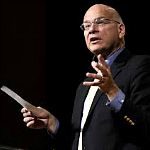Quotes about Sin-Defined
Sin comes when we take a perfectly natural desire or longing or ambition and try desperately to fulfill it without God. Not only is it sin, it is a perverse distortion of the image of the Creator in us. All these good things, and all our security, are rightly found only and completely in Him.
Sin is believing the lie that you are self-created, self-dependent and self-sustained.
We need to call sin what the Bible calls it and not soften it with modern expressions borrowed from our culture.
Copied from The Gospel for Real Life by Jerry Bridges, © 2002, p. 28. Used by permission of NavPress – www.navpress.com. All rights reserved. Get this book!
Sin is the dare of God’s justice, the rape of His mercy, the jeer of His patience, the slight of His power, and the contempt of His love.
Sin is not weakness, it is a disease; it is red-handed rebellion against God and the magnitude of that rebellion is expressed by Calvary’s cross.
Sin is not merely wrong acts and thoughts, but sinfulness as well, an inherent inner disposition inclining us to wrong acts and thoughts. We are not simply sinners because we sin; we sin because we are sinners.
Christian Theology, Baker, 1998, p. 596. Get this book!
A sin is any act, word, or thought that breaks a command or instruction from God. Our sin may affect those around us or may be directed at someone in particular, but we need to see that all sin is primarily against God.
Sin is any failure to conform to the moral law of God in act, attitude, or nature… Sin includes not only individual acts such as stealing or lying or committing murder, but also attitudes that are contrary to the attitudes God requires of us.
Systematic Theology, Zondervan, 1994, p. 490. Used by Permission.
Get this book!
Sin is mankind’s willful choice, in spite of the unceasing mercies and kindness of God, to refuse to honor Him by reflecting His character. God made us for that supreme purpose, but we determined to go the way of our own selfish preoccupations. Any action that does not reflect the character of the Creator in its motive and consequences is sin. It is an assault on God’s prerogative to spurn God’s glory and act in our own self-interests.
The Bible uses many terms to describe the nature of sin: ignorance (Eph. 4:18), error (Mk. 12:24-27), impurity, idolatry (Gal. 5:19-20), trespass (Rom. 5:15), etc. Sin’s essence is placing something else in God’s place. It is anything that falls short of His glory and perfection. Sin is disobedience.
The Bible defines sin as craving something more than God. Sin is making something more important than God.
But too often it has been overlooked that the opposite of sin is not virtue, not by any manner of means. This is in part a pagan view which is content with a merely human measure and properly does not know what sin is, that all sin is before God. No, the opposite of sin is faith, as is affirmed in Rom. 14:23, “Whatsoever is not of faith is sin.”
Sin is an attack on God’s character, a denial of God’s truth, and affront to His very being.
Forsaken by Mark Dever and Michael Lawrence taken from It Is Well, by Mark Dever and Michael Lawrence, copyright 2010, Crossway Books, a division of Good News Publishers, Wheaton Illinois 60187, www.crosswaybooks.org, page 87.
Sin is the antithesis of God’s glory, a contradiction of His holy nature. It is all that falls short of God’s blameless character, amounting to nothing less than cosmic treason against the Creator.
Sin is a transgression of God’s law (1 John 3:4) and defiles His image in man, staining his soul with Satan’s image (John 6:70; 8:44). Sin is hostility and rebellion against God (Lev. 26:27; 1 Tim. 1:9). It is ingratitude toward God (Josh. 2:10-12), is incurable by man himself (Jer. 13:23), affects all men (Rom. 3:23), and affects the total man (Jer. 19:9), body, mind, and spirit. It brings men under the dominion of Satan and the wrath of God (Eph. 2:2-3), and it is so persistent in the heart of man that even the regenerate person needs to continually fight against it (Rom. 7:19). It subjects man to trouble (Job 5:7), emptiness (Rom. 8:20), lack of peace (Isa. 57:21), and to eternal hell if he does not repent (2 Thess. 1:9).
The essence of sin is selfishness (Tony Hart).
Sin is the rejection of God’s authority. Sin is based on a denial of God’s goodness and truth. Sin involves idolatry (Richard and Sharon Phillips).
What is sin? Sin is a species of rebellion against God. It is self-pleasing: it is the utter ignoring of God’s claims: being completely indifferent whether my conduct pleases or displeases Him.
Sin is what you do when you are not satisfied in God.
Sin is what you feel and think and do when you are not taking God at His Word and resting in His promises.
This Momentary Marriage – A Parable of Permanence, Desiring God Foundation, 2008, p. 130, www.DesiringGod.org.
Sin is lawlessness. In other words sin is man’s refusal to submit to God’s law, that is, God’s Word. It is insubordination.
Jesus Christ is an Advocate for Sinners, Sermon, February 10, 1985, www.DesiringGod.org, Used by Permission.
We never see sin aright until we see it as against God… All sin is against God in this sense: that it is His law that is broken, His authority that is despised, His government that is set at naught… Pharaoh and Balaam, Saul and Judas each said, “I have sinned”; but the returning prodigal said, “I have sinned against heaven and before Thee”; and David said, “Against Thee, Thee only have I sinned.”
A sin is anything that violates the moral law of the universe. Any time we do what God tells us not to do or fail to do what God commands us to do, we commit a sin. And every time we sin, we are found guilty in the sight of God and deserve divine judgment.
A sin…consists in doing, saying, thinking, or imagining anything that is not in perfect conformity with the mind and law of God
[Sin is] the fault and corruption of the nature of every man that is naturally engendered of the offspring of Adam; whereby man is very far gone from original righteousness, and is of his own nature inclined to evil, so that the flesh lusts always against the spirit; and, therefore, in every person born into the world, it deserves God’s wrath and damnation.
Quoted in: Holiness by J.C. Ryle, Ninth Article of the Church of England, Moody Publishers, copyright 2010, p. 20.
Sin, in short, is that vast moral disease which affects the whole human race, of every rank, and class, and name, and nation, and people, and tongue; a disease from which there never was but one born of woman that was free. Need I say that One was Christ Jesus the Lord?
Sin…consists in doing, saying, thinking, or imagining, anything that is not in perfect conformity with the mind and law of God. “Sin,” in short, as the Scripture says, is “the transgression of the law” (1 Jn. 3:4). The slightest outward or inward departure from absolute mathematical parallelism with God’s revealed will and character constitutes a sin, and at once makes us guilty in God’s sight… There are sins of omission as well as commission, and that we sin…by “leaving undone the things we ought to do,” as really as by “doing the things we ought not to do.”
We must understand that sin is a desire. We don’t fall into sin. We may be tempted, but sin is a personal choice we make and one to which we are responsible. Simply put, we sin because we want to sin. We believe sin will bring us greater pleasure, greater joy than obedience.
Every sin, no matter how seemingly insignificant, is an act of rebellion against the sovereign God who reigns and rules over us and as such is an act of treason against the cosmic King.
The Westminster Shorter Catechism answers the fourteenth question, “What is sin?” by the response, “Sin is any want of conformity to, or transgression of, the law of God.” Here we see sin described both in terms of passive and active disobedience. We speak of sins of commission and sins of omission. When we fail to do what God requires, we see this lack of conformity to His will. But not only are we guilty of failing to do what God requires, we also actively do what God prohibits. Thus, sin is a transgression against the law of God.
Sin is a deliberate treason against the majesty of God, an assault upon His crown, an insult offered to His throne.
Sin is the misguided and selfish determination to seek happiness in places where ultimately only emptiness and disillusionment are found. Spiritual hunger is not sin. Sin is declining God’s offer of filet mignon to fill our spiritual bellies with rancid ground beef.
One Thing, Christian Focus, © Enjoying God Ministries, 2004, p. 28, www.enjoyinggodministries.com. Used by Permission.
I can remember when I was an undergraduate student, how enlightening it was to learn from William Temple that what the Bible means by sin is "self-centeredness." Let me tell you how Temple puts it in his great little book, Christianity in the Social Order. He says, "I am the center of the world I see. And where the horizon is depends on where I stand. Education may make my self-centeredness less disastrous by broadening my horizon of vision. It’s like a man climbing a tower who sees further in terms of physical vision while remaining himself the center and the standard of reference. I am the center of the world I see." That’s what the Bible means by sin. Luther talks about man curved in on himself. Malcolm Muggeridge talks about the dark little dungeon of my own ego. That is sin, a twist of self-centeredness that has us imprisoned. But God’s order is that we love him with all our being, and then that we love our neighbor and put ourselves last. Sin is the reversal of the order.
Whatever weakens your reason, impairs the tenderness of your conscience, obscures your sense of God, or takes off the delight for spiritual things, whatever increases the authority of your body over your mind, that thing is sin.
Sin is a moral problem. It is about my rebellion against God and my quest to have for myself the glory that is due Him. Sin is not first about the breaking of an abstract set of rules. Sin is first and foremost about breaking relationship with God, and because I have broken this relationship, it is then easy and natural to rebel against God’s rules.
Headed for Disaster by Paul David Tripp taken from Dangerous Calling by Paul David Tripp copyright 2012, Crossway Books, a division of Good News Publishers, Wheaton Illinois 60187, www.crosswaybooks.org, p. 26.
Sin has the devil for its father, shame for its companion and death for its wages.
Most sins are ungodly exaggerations of things that are good.
When People are Big and God is Small, P&R Publishing, 1997, p. 101. Get this book!
Every sin is founded on a lie – the lie of unbelief directed toward God’s Son and His declared truth.
Counseling the Hard Cases, Edited by Stuart Scott and Health Lambert, B&H Publishing, 2012, p. 126, Used by Permission.






























